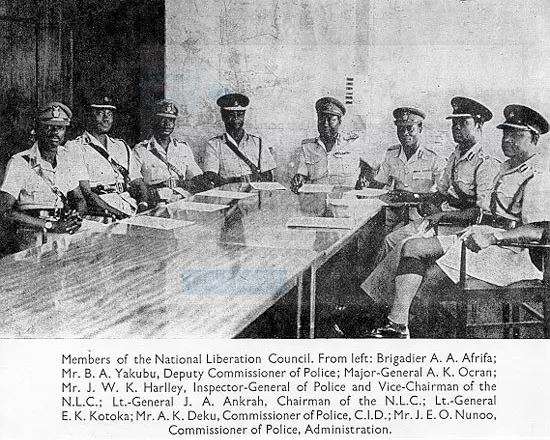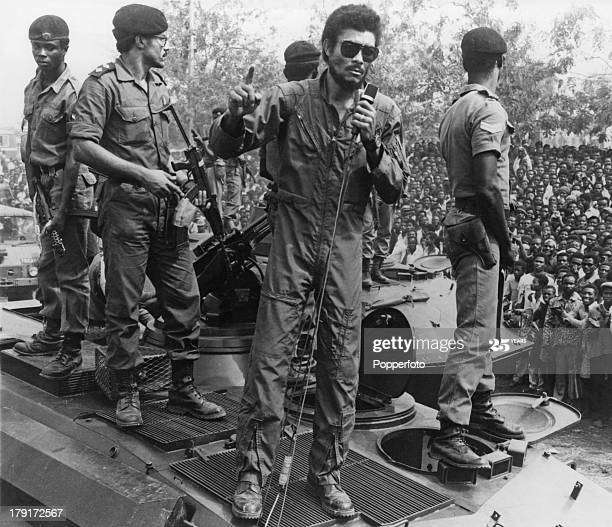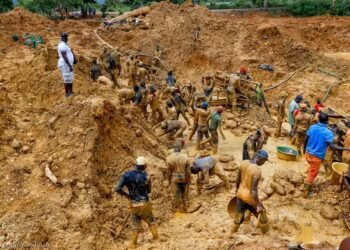IMANI Center for Policy and Education, and Prof. Kwesi Aning have filed a writ at the Supreme Court challenging the President’s power of appointment and dismissal of various heads of the country’s security agencies. Although the writ solely refers to the security services, the outcome would potentially have a cascading effect on the leadership of the entire Civil Service henceforth.
Appointment and dismissal of heads of the security agencies is one of the few thorny challenges of Ghana’s Fourth Republic. Successive governments have promised continuity on campaign trails, only for them to do the opposite once in. While commending the IMANI and the learned Professor for their courage, let us take a detour into history to examine the beginnings as well as the nuances of this trend and a few rationales behind them.
Anti-Colonial Struggle and the African Personality
Despite the difficulty in pinpointing how it started, the independence period can provide a good starting point. Besides, many people have fingered Military intervention and rule as the genesis of the problem. A few others have faulted past elected governments also for facilitating the practice.
To begin, upon attainment of Independence, Ghana’s Prime Minister and later President had this wonderful idea of the “African personality”. In line with Nkrumah’s radical idea of rapid transformation and development of the country, there was the need to put Africans and for that matter Ghanaians at the helm.

This occasioned a deliberate and calculated purge of all British heads of the newly independent Ghana security service. They were replaced with their newly promoted Ghanaian erstwhile subordinates. Ironically, it was a few of those crops of officers he had promoted who conspired and overthrew him.
Military Coups and Regimes
According to another school of thought, whatever may be the consequence of Nkrumah’s policy, it was a historical imperative and he had no option other than to pursue the policy he chose and implemented. This school of thought blames the first military administration and its successive surrogates for the situation.
It is an incontrovertible fact that after the coup, anything or anyone suspected of association with Nkrumah and his Convention People’s Party (CPP) administration or ideology was ostracized. K.A. Gbedema and the like were barred from running for political office and displays of support for Nkrumah were highly suppressed.
The purge was more intense and widespread in the military, than it was acknowledged. Soldiers and officers suspected of Pro-Nrumah disposition were hounded and dismissed from the Military.
Without exception, the Second and the Third Republics incurred the ire of some people alongside scholars. The second under Busia was accused of benefiting from the anti-Nkrumaist purge witnessed in the country and therefore could not have been very assertive even once in office for the fear of a countercoup as memory invoked passion and loyalty t as it does now.
Finally, the uprising of June 4th, 1979, further muddied the situation. The trial and execution of former heads of state and senior Military Generals were preceded by a large purge never seen at the time in Ghana. The same thing happened with the Third Republic, it was as vulnerable as the Second Republic before it and suffered the same fate it did.

The Fourth Republic and Hegemonic Stability
The stability enjoyed by the current Republic has been attributed to several factors, amongst them is the politic of “self-succession”. The fact that, unlike the previous two post-Nkrumah Republics, we have the same person in office contesting and “staying” in office, only that this time as a “civilian” in office, made the situation manageable and predictable.
The situation allowed for continuity with “hegemonic stability” i.e. the fear and dominance of Rawlings. This has prompted scholars and critics of the current constitution to refer to it as Rawling’s constitution.
It is believed that the broad powers of the president under the law emanate from fear and exigency of granting easing him out of office. It further made it easier for reforms Ghana underwent Civil Military Reforms Programmes successfully without the prospect of a coup hanging on the system.
Since Rawlings left office, successive leaders have enjoyed the benefit of such a broad power hence the little impetus for reform. Would the outcome of this case serve as the catalyst needed to trim the powers of the president further? Fingers crossed.
Read More: : State Cahoots With Landguards, a Burgeoning Security Menace



















